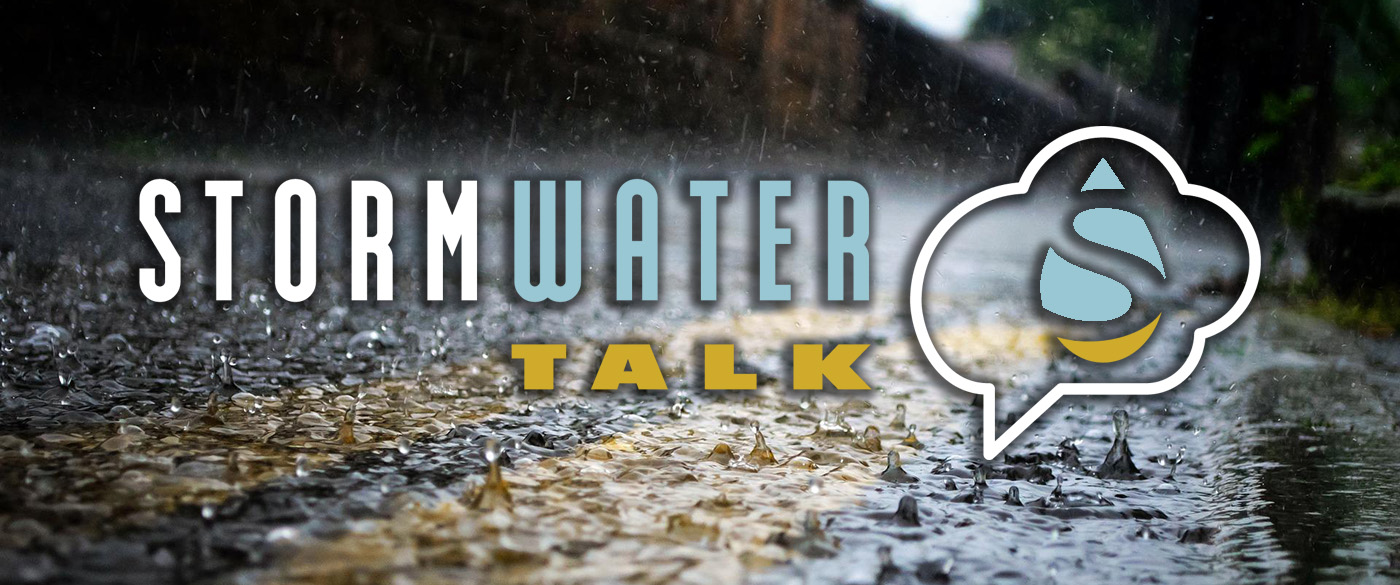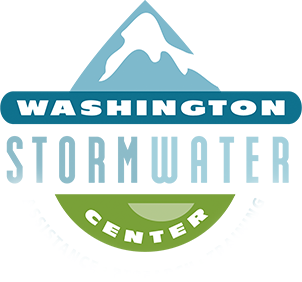
Presented by the Washington Stormwater Center, Stormwater Talks is a series of webinars, each taking place at the noon hour, focusing on various municipal stormwater topics. Each session features a 45-50 minute presentation, followed by a 10-15 minute live Q&A with the presenter(s).
These presentations offer the opportunity to hear from stormwater professionals across the state of Washington as they share lessons learned through their own programs and projects. Each features relevant topics on research, new technology, and MS4 permit issues presented by stormwater professionals and permittees.
If you have ideas for a presentation you’d like to see, please contact Laurie Larson-Pugh.
Municipal Stormwater Talk: Biophilia
Take a peek behind the curtain with Heidi Siegelbaum. Biophilia is one of the main drivers for environmental policy, building design, community cohesion, health, and therapeutic approaches. It is used to gird environmental policy, retail design, school and hospital design, open space planning, and community planning. Popularized by E.O. Wilson but coined by Eric Frohmm, biophilia means “love of life” and explains our love for pets, water, gardening, flowers, and outdoor recreation.
Municipal Stormwater Talk: Turning Information Into Decisions During Emergency Incidents
In this training, we will be discussing the multitude of factors that go into making a field decision. (Regulatory requirements, SOPs, heuristics, political climate, media, workplace expectations, community expectations, employee trust, available resources, insecurity…). What happens when decisions are only a top-down approach? The failures associated with delayed decisions. The work improvements associated with empowering employees with making decisions. While this training isn’t specifically NPDES related the instructor formed his views while working as the lead of Seattle Public Utilities, Spill Response Program.
Municipal Stormwater Talk: Students for Clean Water Video Contest
In 2021, Stormwater Partners of SW Washington launched their first student video contest. We asked middle and high school students to create short videos about ways to prevent pollution or their personal or cultural connections to water. The contest provided a safe stewardship activity when COVID restrictions made traditional activities infeasible. Hear how Stormwater Partners coordinated the contest, from promotion to student recognition, by engaging local teachers, diverse community groups, and private sector sponsors.
Municipal Stormwater Talk: Citizen Science
Join Dianne Hennebert as she details a local organization’s approach to the City of Anacortes about launching a volunteer-led citizen science stormwater outfall monitoring program. The City opted to work with them on the development of the program and continue to coordinate with the volunteer program. Come hear about the development process, the successes, and challenges, and the lessons learned as the program celebrates two years of sampling.
Municipal Stormwater Talk: Managing Stormwater with Drones
Zack Holt and Darren Podraza present a talk on how the City of Port Orchard Public Works is utilizing Drones to integrate inspection and permit compliance into their stormwater management program.
Municipal Stormwater Talk: MS4 Receiving Waters Mapping
Pierce County staff will introduce the origins of the Urban Stormwater Catchment (USC) delineation process from the Lake Tahoe TMDL. We will illustrate how USCs improve the spatial understanding of stormwater routing created by the evolution of the built environment over time. We will discuss the drainage realities associated with ongoing development and urbanization; and how USCs have a more practical utility for watershed planning and the implementation of TMDL pollutant reduction programs.
Municipal Stormwater Talks: Making Detention Facility Smarter – CMAC Pilot Project in Redmond, WA
This presentation will provide an overview of how Opti CMAC (Continous Monitoring Active Control) technology works, detail their potential in helping jurisdictions meet NPDES requirements and improve stream habitat, and detail the required feasibility assessments to ensure this technology is used at the right locations.
Municipal Stormwater Talks: Green Stormwater Infrastructure (GSI) Projects Regional Model
David Jackson is the program manager for the community conservation team at the Snohomish conservation district. The “cc team” focuses on projects in urban, suburban, and exurban areas. Projects include stormwater management, urban agriculture, fire-safe communities, and urban habitats.
Municipal Stormwater Talks: When Fish Speak English
This is a presentation that will blow the lid off conventions about the rational human, introduce communication best practices, social marketing, science communication and reveal the dynamics between scientists and other audiences. It will feature an icon of the Pacific NW, a fish.
Municipal Stormwater Talks: Bioretention Hydrologic Performance Study II Presentation
Our team has been conducting hydrologic monitoring, infiltration studies, plant community development, and modeling comparison of ten newly designed and built bioretention projects throughout the Puget Sound Basin. We will present our recently compiled findings and recommendations to jurisdictions for improved design plan review, inspection, and expected bioretention performance.


